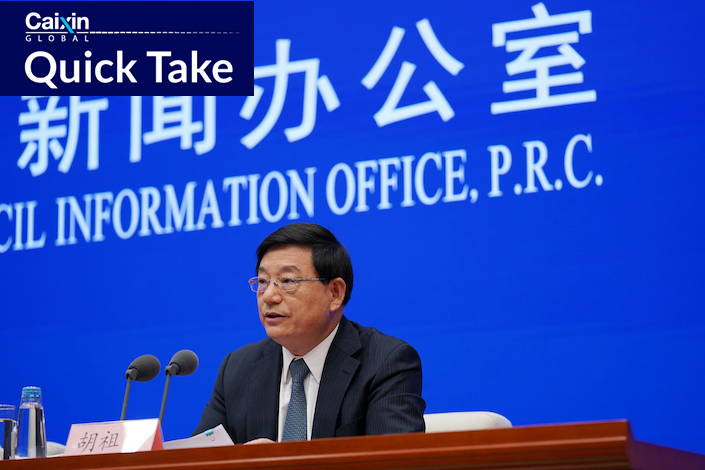
What’s new: Rising global crude and natural gas prices resulting from Russia’s invasion of Ukraine will drive up China’s costs for importing energy, but the overall impact is controllable, a senior Chinese official said Monday.
China’s annual target for the rise in the consumer price index (CPI) of around 3% is achievable despite the higher energy costs because of a highly resilient economy, large market space and abundant policy toolbox, said Hu Zucai, deputy head of the National Development and Reform Commission (NDRC), at a press briefing.
China’s CPI is currently at a low level, and the government will move to ensure supply and price stability of grain, energy, iron ore and other major commodities and to mitigate the impact of imported inflation, Hu said.
The key to ensuring stable energy supply is coal, Hu said. Coal accounts for 56% of China’s total energy consumption and about 60% of the country’s power generation.
China will accelerate building up a government reserve more than 200 million tons of coal, add more than 5 billion cubic meters of natural gas storage, and guide key energy producers and users to bolster their stockpiles, said Lian Weiliang, another NDRC deputy director, at the same briefing.
The background: The Russia-Ukraine war pushed the global price of thermal coal up nearly 30% in the past week to a record high. As concerns about supply disruption mount, prices of oil and other commodities also skyrocketed to multi-year highs.
Russia is the world’s sixth-largest coal producer, exporting 223 million tons in 2021. Its thermal coal accounted for 17% of the global coal trade, and coking coal, for 9%. China is Russia’s largest coal buyer. Russia accounted for 17.6% of China’s coal imports of 324 million tons in 2021.
Contact reporter Denise Jia (huijuanjia@caixin.com) and editor Bob Simison (bob.simison@caixin.com)
Get our weekly free Must-Read newsletter.







